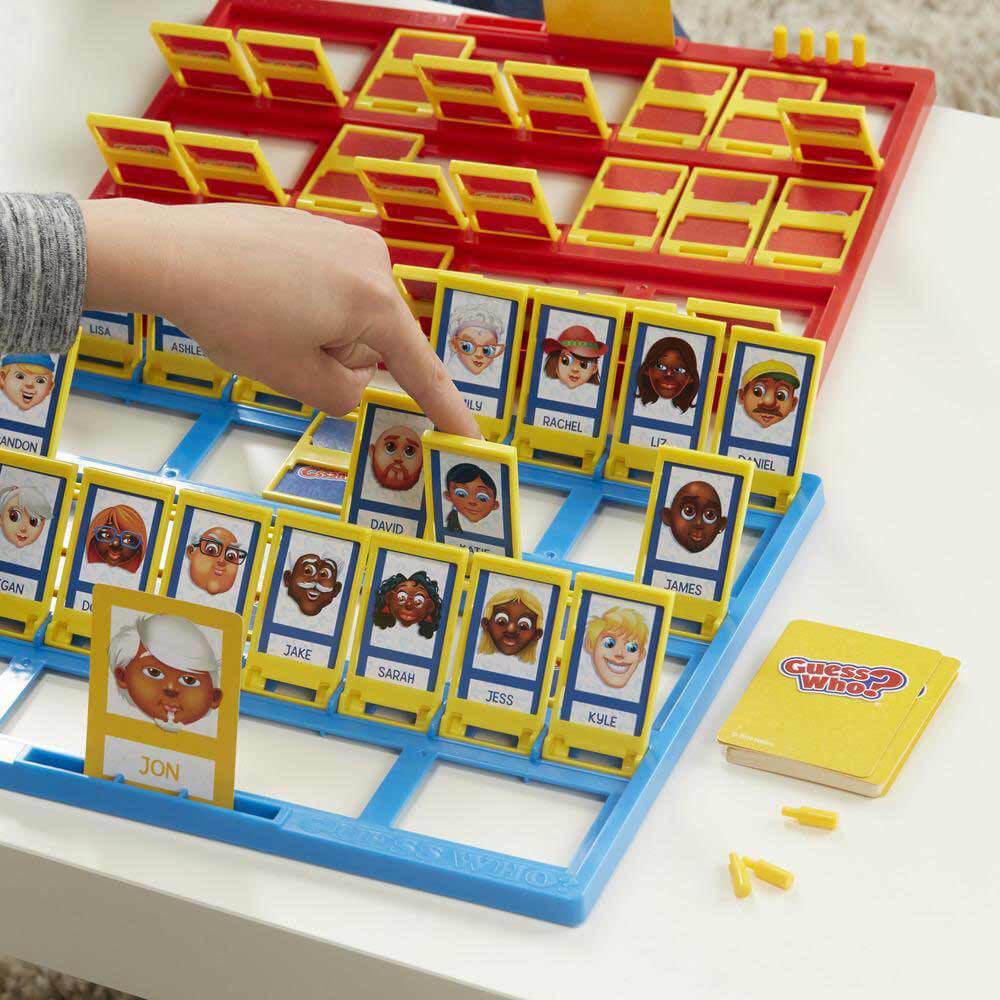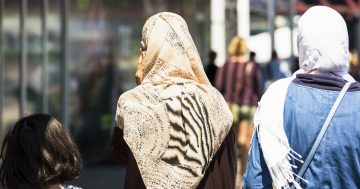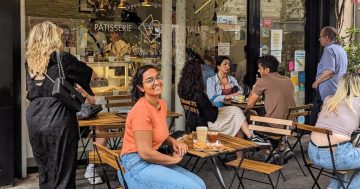
Sorry, lady, that’s not me. Guess again. Photo: Kogan.
It wasn’t the first time it’s happened to me – being mistaken for another brown person. This time, though, the interaction happened in front of my three young nieces and it was excruciating.
I was meeting my mother and nieces for coffee in the suburbs. The girls had finished school, and it was a lovely afternoon to catch up with them all, with my newborn son in tow. We sat down to our coffees, and were deep in conversation when someone interrupted us.
“Hello again!” a woman said brightly.
I looked at her with a polite smile.
“Hello?”
I assumed she was going to ask a question or something, because I had never seen her before in my life. She was a friendly-looking older woman, dressed in neat casual clothes with tidy blonde hair and a bright smile.
“I saw you this morning,” she said, “In Gungahlin – remember?” She was looking between me and my mother, and both of us gave her blank smiles.
“No, I wasn’t in Gungahlin,” I said slowly. “Sorry, you must be mistaken.”
“No, it was definitely you,” she insisted. “Both of you! I saw you.”
The women went on to insist that she had seen my mother and I. “You,” she said, pointing at Mum, “Were pushing a trolley, and you went past her, and she had cuts all up and down her legs. I swear it was you!”
This went one for at least five minutes – her insisting it was us and telling us what ‘we’ had been doing, while I politely continued to deny that we had been there. As she finally began to accept she was mistaken, things went downhill.
“Well, you look exactly the same as those ladies. One of them was wearing the headgear, like you are,” she said, pointing at Mum’s hijab. “And I don’t think she spoke any English, she just didn’t look like she did. And the girl who looked like you … well, actually, she didn’t have glasses. And you have a baby. But she looked just like you!”
This went on for another few minutes, the woman alternating between covering her mistake and insisting that we were there and had somehow forgotten it. Then eventually she left, and our table sat in silence for a moment.
“Girls,” I said, turning to my nieces, “That’s what we call ‘casual racism’.”
Here’s the thing – everyone makes mistakes, and it’s perfectly normal to confuse someone for someone else. Probably a bit less common to go up to complete strangers, confusing them for other strangers (this woman didn’t know the people she thought we were, anymore than she knew us), but she seemed like a friendly person, so I’m going to assume she was just a gregarious type and enjoys chatting to people.
But after we had already told her that it wasn’t us, to continue to insist it was and then follow up by justifying why she thought it was us (apparently on the basis that both Mum and the other woman wore ‘headgear’, which linked to her assumption neither spoke English, and the fact that all of us are brown), is where the casual racism creeps in.
As I explained to my nieces, the assumption underlying the woman’s behaviour was that our primary identifying feature is the colour of our skin – so to see two brown women, at separate times and in separate contexts, is enough for her to think we’re the same despite the overwhelming evidence to the contrary.
For example, the two women she saw in Gungahlin weren’t together, didn’t appear to know each other (one was pushing a trolley past the other, according to the lady), were dressed differently, and lacked identifying features (like my glasses). In contrast, Mum and I were sitting together, drinking coffee, clearly connected to each other. Most importantly, we said we weren’t the same people – but that didn’t deter the woman from insisting we were somehow wrong about our own identities.
Did this woman intend to be racist? No, of course not. Was she causing any harm by making those assumptions? Not directly, and only insofar as it disrupted our coffee to have to repeatedly assure her she was wrong.
But I wanted to be clear with my nieces that the uncomfortable feeling they were experiencing was valid. All three of them looked and felt embarrassed and awkward after the interaction. The feeling, which I am very familiar with, is a creeping sense of shame that has built up over time due to direct racism and which rears its head any time our race becomes the focus in public.
When you have enough random strangers say actually racist things to you (from children saying your lunch smells at school, to strangers yelling insults on the street), even benign interactions like this one chafe. I wanted my nieces to know that they were right in feeling that the woman, regardless of her intentions, was stereotyping based on our race, and that they don’t have to humour anyone when that occurs.
When we’re made to feel like our skin colour is the most memorable or important thing about us, it can feel incredibly demoralising. Undoubtedly, people will rush to tell them that their experiences of racist stereotyping or racism are not that, are benign and that they’re overreacting, for the rest of their lives. I wanted to confirm for them that sometimes, the gut feeling they have is there for a reason. That doesn’t mean we have to react, and it doesn’t mean that the woman was doing anything ‘wrong’ by starting a conversation – but acknowledging casual racism like this is important, and it’s unlikely to be the last time they witness or have to deal with similar conversations.




















